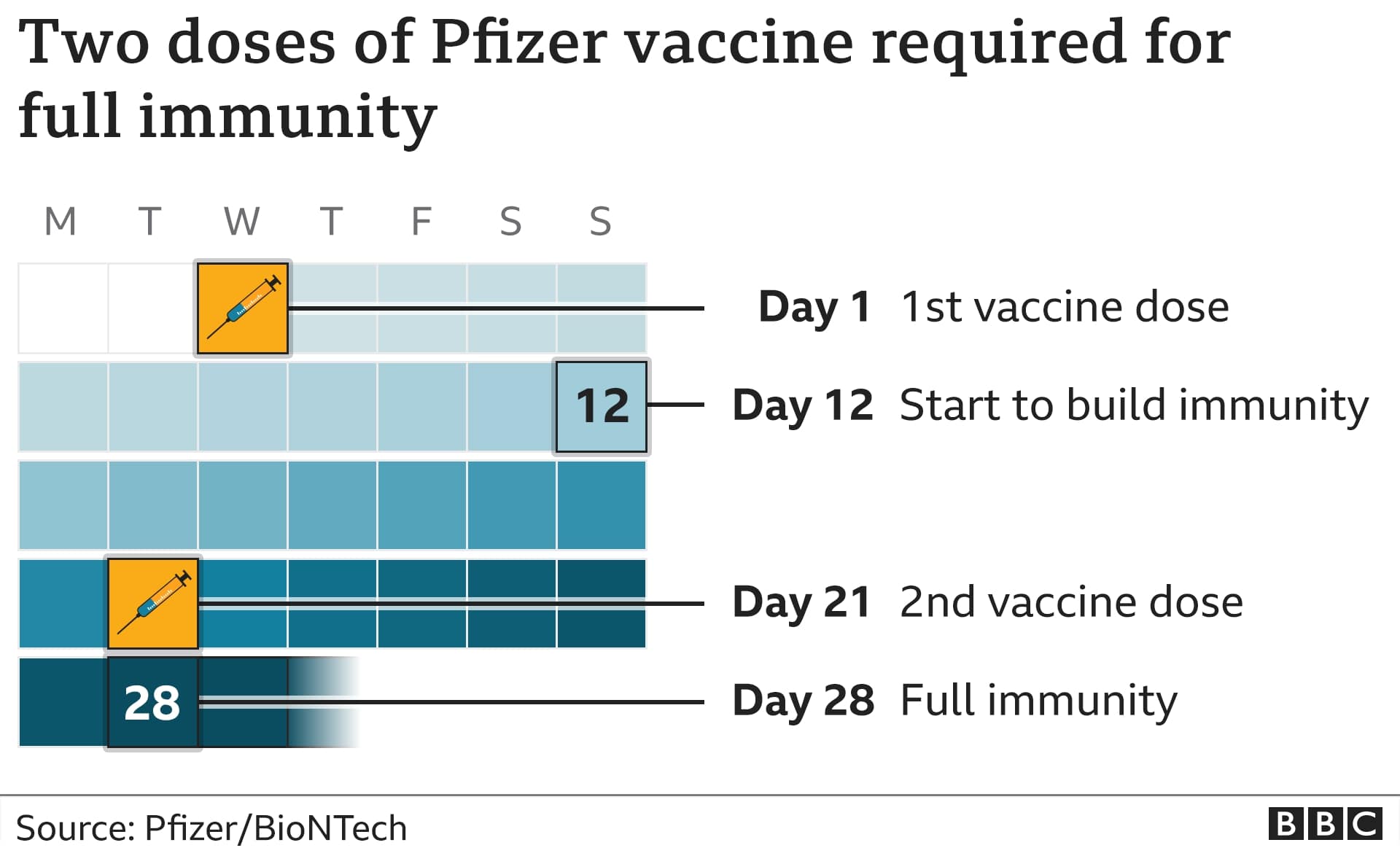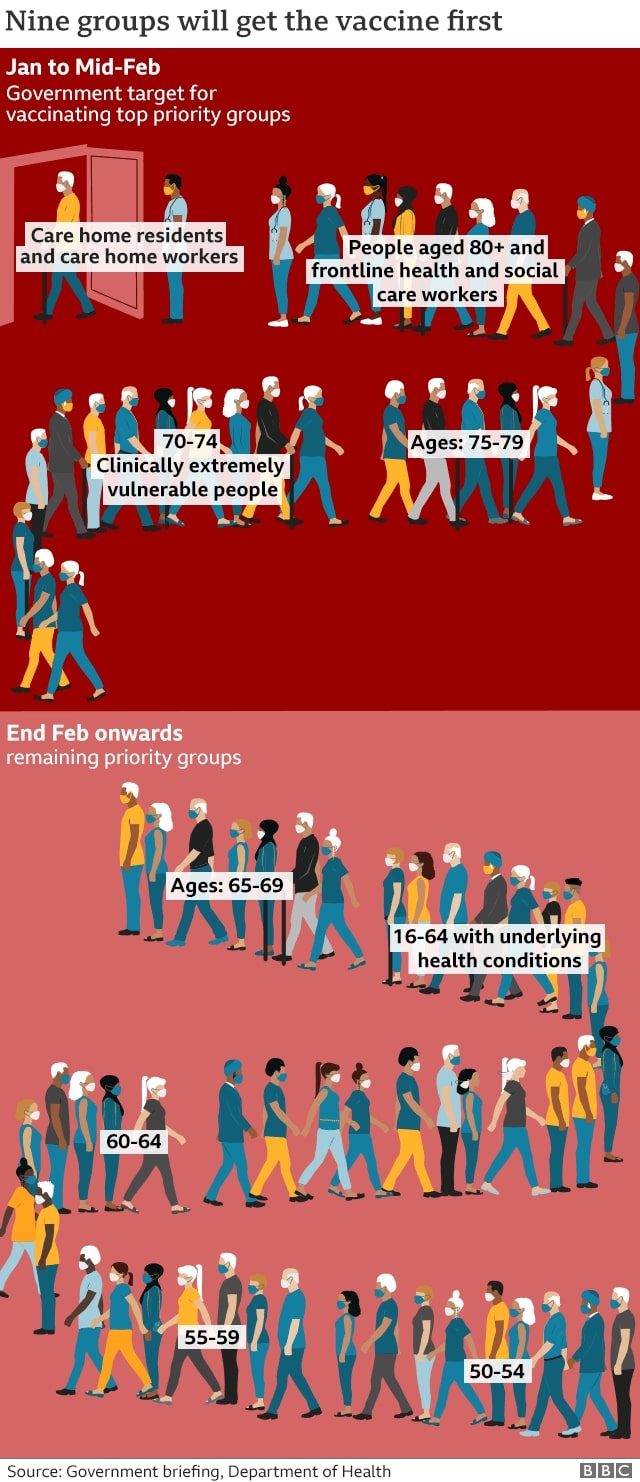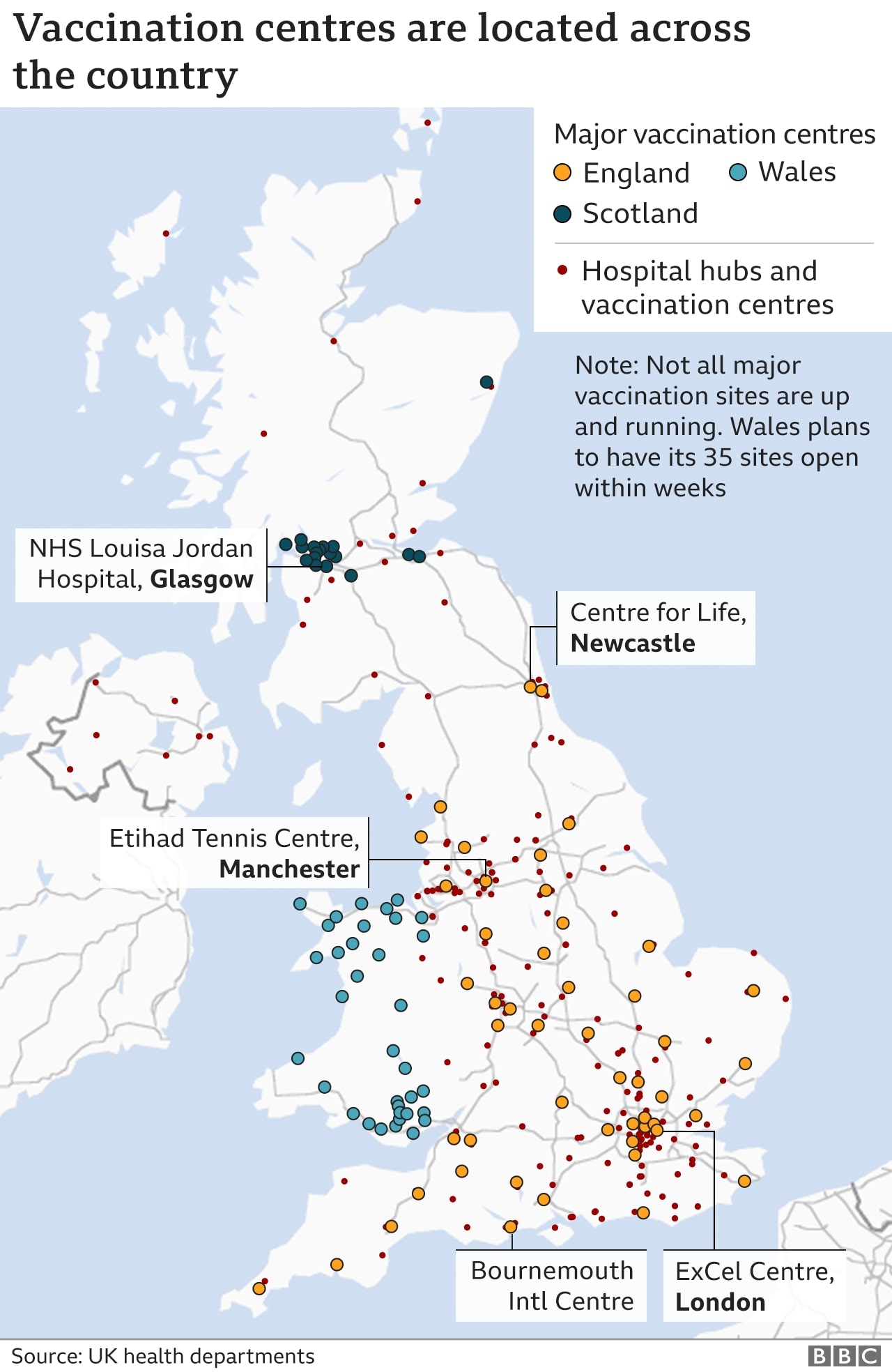This article is reviewed regularly (on a monthly basis) by Wego’s editorial team to ensure that the content is up to date & accurate.
Updated 1 February 2021
With many understandably hoping the vaccination drive would spell the end of the global pandemic, here’s everything you need to know about the Pfizer vaccine in the UK.
Table of Contents
How does the Pfizer vaccine work?
There are currently four prevalent types of COVID-19 vaccines being developed in regards to COVID-19. In layman’s terms, these are whole virus (weakened or dead coronavirus), protein subunit, nucleic acid (RNA or DNA), and viral vector.
The Pfizer/BioNTech BNT162b2 vaccine is a messenger Ribonucleic Acid (mRNA) vaccine; meaning that it carries genetic instructions that aid the recipient’s cells in producing protein pieces that trigger the immune system response. The response is in form of the reproduction of millions of copies of spike protein which stimulates the making of antibodies.
This is the same spike protein that is available in the coronavirus and used to enter the cells in the human body. If a sufficient number of antibodies are produced in the human body with the mRNA vaccine, they will prevent the coronavirus SARS-CoV-2 from proliferating, thus protecting the recipient from COVID-19.
How effective is the Pfizer vaccine?
The Pfizer vaccine requires two doses to be administered 21 days apart. Upon the administering of the first dose, the recipient’s immune system is alerted. The second dose functions as a booster to further buff the immune system thus enabling the body to fend off the infection.

© BBC.com
The vaccine’s efficacy is recorded at 52 percent following the administering of the first dose, while the second dose sees the efficacy rate climbing up to 95 percent. It generally takes the body around four weeks to develop immunity after the first dose although there have been reports of people developing immunity sooner.
How long will the Pfizer vaccine protection last?
As of yet, data are still inconclusive when it comes to the period of protection offered by the Pfizer vaccine. CEO of BioNTech Sahin suggests the possibility of months or years of protection before the vaccine recipient becomes vulnerable to COVID-19 infection once again. Eleanor Riley at the University of Edinburgh mentioned that we might have to resort to annual boosters.
Have there been any reported side effects?
As far as safety is concerned, the Pfizer vaccine has an overall great safety profile with its benefits outweigh the potential risks. Based on safety data collected from 37,586 participants enrolled in an ongoing phase 3 clinical trial, the most commonly reported side effect involves volunteers experiencing an injection site reaction (seen in almost 84% of those who received the vaccine).
So, if you are taking the vaccine, know that the injection site on your arm might hurt a little, show some redness, and get swollen a bit. You might also experience difficulties in moving your arm freely. Other known side effects of the Pfizer vaccine includes:
- Fatigue
- Joint pains
- Fever
- Chills
- Headache
Severe reactions were rare with four cases of Bell’s palsy being reported during the trial. However, there is no clear evidence that the cause of this temporary paralysis was the vaccine. Adverse allergic reactions are also possible and hence those who experienced any major allergic reaction during the first dose of the vaccine are being advised not to take the second one.
Pfizer vaccine in the UK
The United Kingdom became the first in the world to authorize the deployment of the Pfizer/BioNTech vaccine. The country kicked off its vaccination campaign in December of last year by rolling out the vaccine to prioritized groups as well as the general public.
Who’ll get the Pfizer vaccine in the UK?
People on the priority list will be the first ones to receive the vaccine. The priority list is detailed in the graphic below:

© BBC.com
How do I register for the jabs?
After the priority list has been exhausted, everyone else will then be given the chance for the inoculation jab. You should avoid going to your GP or calling the NHS 111 as the authorities will inform you of when and where your inoculation will take place.
Where and when to get the Pfizer shots in the UK?
Residents and citizens of the UK can get themselves vaccinated mainly at the following:
- local GP practices and community pharmacies
- hospital hubs
- major vaccination sites across the country

© BBC.com
Vaccination services in England are currently being offered at more than 1,000 GP surgeries, community pharmacies and hospital hubs. These are in addition to the 50 major vaccine sites that have been established in sites such as sports centers, racecourses and showgrounds.
Vaccination services in Wales are being provided at GP practices and by mobile units. Some 35 mass vaccination centers are likely to be up and running in the coming weeks.
Vaccination services in Scotland will be provided in several major vaccination centers; 16 sites will be designated in the Greater Glasgow and Clyde area. Currently, GP surgeries, pharmacies and hospital hubs are providing jabs for the public.
Vaccination services in Ireland mainly take place at mass vaccination clinics, GP surgeries and community pharmacies. Qualified and trained healthcare workers, including hospital doctors, community medical officers, nurses, GPs and pharmacists will be administering the jabs to the public. Additionally, mass vaccination centers have been set up in Dublin, Galway and Portlaoise.
Latest updates on Pfizer vaccine in the UK
In a recent development, the number of available Pfizer vaccines will be lower than initially expected as the company is upgrading its Belgium factory in its bid to boost production in March. However, Pfizer has also stated although its UK shipments would inevitably be affected, the country would still receive the agreed volumes for the first three months of the year.
Additionally, the UK’s campaign to reach as many people as possible as quickly as possible could mean that the country will opt to prioritize the administering of the first dose of the Pfizer vaccine. This essentially means that those who have been administered the first dose will have to wait some 12 weeks to receive their second jab.













